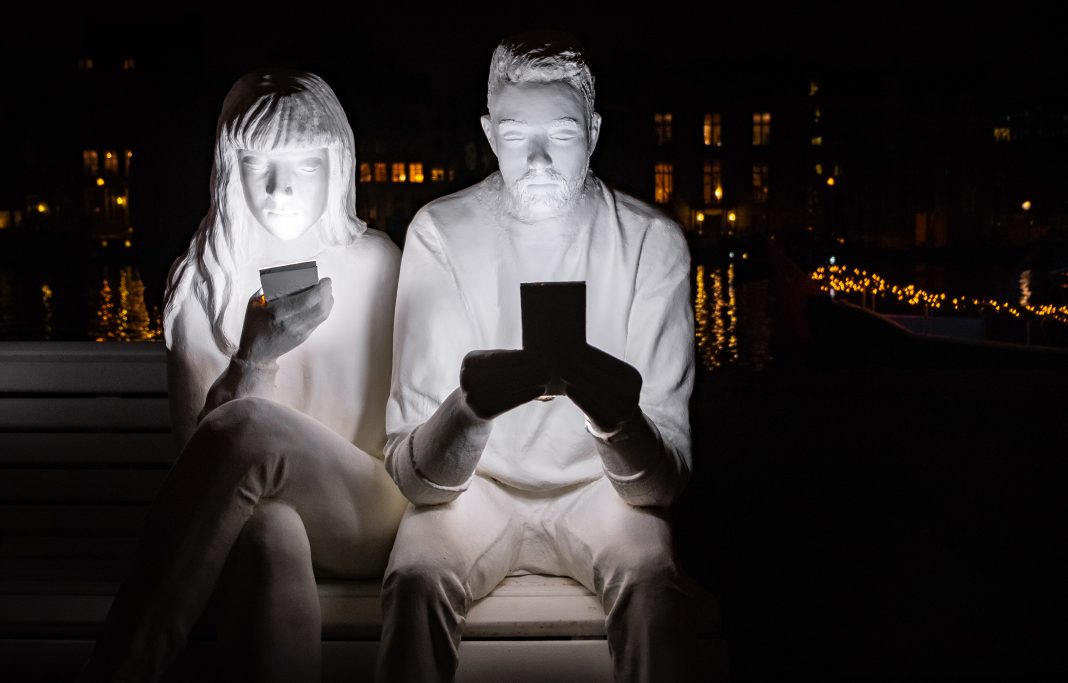Almost one in ten Brits have had their naked pictures or videos shared without their consent, which is colloquially known as revenge porn
Sharing sexually explicit selfies is now common practice for many couples (44%) but 8% has revealed the humiliating reality of their private pictures, suddenly becoming public.
The vast majority of victims, 81%, said they knew who the perpetrator was, with one in three being their ex-partners in an act of ‘revenge porn’.
Almost one in five (17%) said the crime was committed by a ‘friend.’
The majority of the victims were women who said the material was used as a form of coercion or control, with half of victims being threatened before the image was released.
Attempts were made to blackmail them beforehand by demanding money, threatening to show the images to family or friends or trying to control them or force them back into a relationship after a breakup.
Almost a third (31%) of the 2,000 people polled by law firm Slater and Gordon said they knew someone who has been a victim of revenge porn.
After sharing sexual images of themselves with their partner, 19% said they regretted it as they fear they could fall into the wrong hands in the future.
The research was commissioned by Slater and Gordon after their family lawyers found that the fear of revenge porn had started to seep into divorce proceedings.
Sam Farndale, a family lawyer at Slater and Gordon, said:
“Taking images and sharing them between a loving couple is fine when it is consensual. The issue arises when there is a breakdown in the relationship and suddenly the fear of that person you once trusted, sharing such an intimate thing, can be truly terrifying.
“This is not something that we were dealing with ten years ago but it seems to be on the rise as a concern voiced by our clients. So far these clients are predominately women.
“It adds a very nasty element to the divorce proceedings, making the injured party nervous about fighting for what they are entitled to, especially if they believe these images might be seen by their children. It ultimately can strip that person of any sense of power or control by attempting to humiliate them into submission.”
Sharing an explicit image of sexual nature without consent has been a criminal offence in England and Wales since 2015, with the law recently being updated to include the threat of sharing an image. If prosecuted, the crime can carry up to two years in prison.
15% of all those who had shared private images with their partner believe they have shown them to their friends.
If prosecuted, the crime can carry up to two years in prison.
When asked if they would report it if they were ever threatened by someone with their naked pictures, 35% said no because they would be too scared, embarrassed or don’t believe it will stop them.
Sam added:
“Revenge porn is a form of abuse and a way to exert control over a partner or an ex-partner. Our research highlights that this is not just something that happens to younger people online, as many first assume. It is a crime that preys on any individual’s trust and therefore a risk that many could face.”
Case study:
Sophia, 23 from South London, understands the real consequences of this type of sexual abuse.
Sophia said:
“Two naked images that I had taken of myself were shared without my consent when I was 19 years old. I had sent them to my partner of three years, who I trusted explicitly and never imagined would abuse my trust.
“After we split up, I discovered that the pictures, one of which included my face, were circulating around my old school. In fact, they were part of a larger document which included nude images of other girls at my school, without their consent. The database was created by a group of boys who had been adding to and passing down the document for years, without anyone knowing.
“It was utterly humiliating and made me feel as if I wanted to disappear. It really took a toll on my mental health. I blamed myself for many months after it happened, as it makes you feel as if you are being blamed for a horrendous crime that has been committed against you.
“I was scared when it first happened so I confided in my mum because I needed her on my side. Her first reaction, like many people, was to ask why I had done it. Why had I shared an intimate image of myself? I have found that reaction is only natural, but it is something that I believe should be challenged, as it directs the blame onto the victim.
“Many people choose to share images of themselves when they want to. What they do not choose to do, is to have them passed on to others for the purpose of humiliation, revenge or control.
“It should not be the case that people, predominately women in my experience, are punished for expressing themselves in a way that they choose. It is definitely a form of sexual abuse.”











